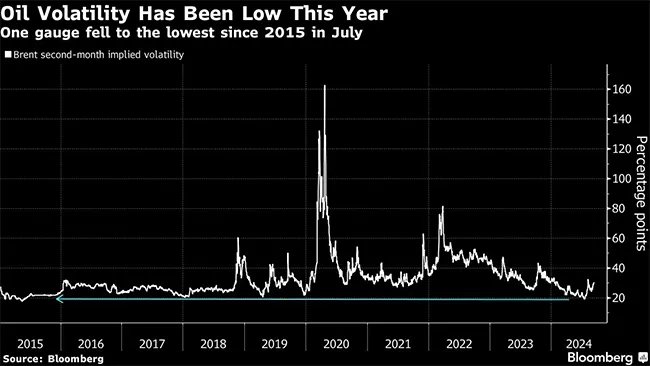World’s Top Oil Traders See Boom Years Fade

[Stay on top of transportation news: Get TTNews in your inbox.]
The world’s top commodity merchants are grappling with a tougher environment for trading oil as seismic market events of the past few years start to lose their impact.
The slowdown is being felt everywhere, from the likes of Glencore Plc and Gunvor Group — where profits are down — to hedge fund boss Pierre Andurand, who ditched oil trades for bets on copper and cocoa. While industry titans are still profitable, these are no longer the blockbuster figures banked since 2020.
Back then, oil prices briefly flicked into negative territory when COVID-19 trashed demand at a time when Saudi Arabia-led OPEC was maintaining high levels of supply. Just under two years later, Russia invaded Ukraine, bringing rich pickings as futures surged and diesel spreads boomed. Now, the volatility that’s the lifeblood of trading has been depressed because the market has absorbed those issues.
“The markets over the past several years were trending markets,” said Kurt Chapman, the former head of crude oil at Mercuria Energy Group, who now heads up the oil division at Levmet U.K. Ltd. “Whether they were massively bearish because of COVID and physical traders could store barrels, or going the other way with Ukraine. This year has been a challenging year because there hasn’t been obvious physical trading opportunities.”

So far in 2024, price swings have been significantly more muted than in years past, even in the face of crude’s recent slump toward $70. Brent futures are — for now — heading for the smallest annual price range since 2004 while a gauge of market volatility touched its lowest in almost a decade earlier this year.
That’s fueling a shift away from surfing big bets on derivatives. The traders are instead hiring more people who specialize in winning new business. There’s also a fresh push into acquiring assets like refineries and tankers that can give merchants an edge.
As oil traders descend on Singapore this week to strike deals during one of the biggest weeks in the industry calender, the tough trading environment is a key conversation topic. Another, though, is the change to oil flows around the world as a result of global conflicts.
G-7 sanctions on Russia in response to the war have cut the amount of barrels that the big traders were willing to buy and sell. However, those same barrels — which once would have gone to refineries in Europe — are still finding their way to customers in Asia, often at knock-down prices that the traders must compete with.
Transtex CEO Mathieu Boivin discusses the environmental sustainability of auxiliary power units. Tune in above or by going to RoadSigns.ttnews.com.
Merchants are also having to cope with competition from increasingly sophisticated competitors. China has seen an increase in so-called term supplies from Saudi Arabia into the likes of Rongsheng Petrochemical, in which Saudi Aramco recently took a stake. The kingdom has also taken shares in other Chinese refining assets, giving it a toe-hold in a key demand center.
“A lot of the organizations that have historically relied on traders to supply or offtake their oil have been building up commercially,” said Roland Rechtsteiner who heads up McKinsey & Co.’s commodity trading and risk practice. “While that adds liquidity and more counterparties, it’s certainly making the ability for merchant traders to access new flows more difficult.”
The tougher market environment can already be seen in published earnings.
The energy division at Glencore notched its lowest half-yearly profits since 2018 due to lower margins trading oil and coal. Meanwhile at Torbjörn Törnqvist’s Gunvor, the firm’s shipping and freight division was a bigger contributor to earnings.
“It’s a little bit of a challenging environment,” Törnqvist said in an interview in Singapore, discussing the wider oil market.
The firm is trading more partly in an effort to counteract the tough market. Gunvor’s latest financial results show it has increased the volumes of crude and oil products it trades to record levels in the first half of the year.
A Swiss oil trading pod of Freepoint Commodities saw significant drawdowns earlier this year before traders departed, according to a person familiar with the matter. Freepoint declined to comment.
Want more news? Listen to today's daily briefing above or go here for more info
Trafigura Group, another major merchant, saw its profit decline 73% in six months through March, although it doesn’t split out how its oil business performed. Ben Luckock, the firm’s head of oil, said that the lack of a trend, and rangebound crude, mean it hasn’t been “particularly easy to trade.”
Vitol Group, the largest independent oil trader, doesn’t publicly report half yearly profits. However, CEO Russell Hardy said in an interview in Singapore that volatility has diminished.
“Volatility has reverted back much closer to the mean,” Vitol’s Hardy said. “Opportunity within trading companies has some proportionality to that.”
Written by Archie Hunter, Devika Krishna Kumar and Serene Cheong





